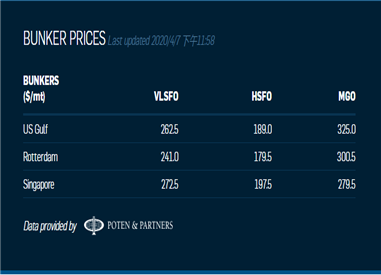



HONG KONG-based small to medium-sized dry bulk vessel Pacific Basin Shipping, has decided to cease any secondhand bulker purchases and reduce its exposure to long term charters due to coronavirus pandemic.
“In light of the current unprecedented market uncertainty and out of caution, we are now pausing our strategy of growing our owned fleet with larger, high-quality secondhand acquisitions, unless we find particularly compelling opportunities,” chief executive Mats Berglund said in the company's first quarter trading update.
The company took delivery of three modern secondhand vessels – one handysize and two supramaxes – during the quarter which it agreed to purchase in 2019.
It now has 117 ships in its owned fleet compared with 34 ships in 2012. Including chartered ships, it had an average of 205 ships on the water in the first quarter.
The time charter equivalent earnings for its handysize vessels fell 12% to $8,020 per day in the first quarter as compared to the same period a year ago, while the supramax fleet generated $11,310 per day, a 9% increase as compared to the year-earlier period.
“Our first quarter 2020 vessel earnings held up well despite a weak Chinese New Year period, including the negative effects that COVID-19 containment measures have had, initially on China in the first quarter and thereafter on many other countries,” the company said.
“Although we had a few logistical delays, our ships continued to trade largely as normal in the first quarter, partly due to the delayed impact of COVID-19 containment measures on the freight market, but also because we benefited from the relative resilience of global shipments of agricultural products, construction materials and other minor bulks.”
It noted that the recently implemented International Maritime Organisation’s 2020 regulations drove higher fuel prices and slower optimal vessel operating speeds early in the quarter, which reduced shipping supply and also mitigated market weakness.
Coronavirus impact
Mr Berglund said he expects that the effects of coronavirus containment measures and current weak spot market rates will negatively affect Pacific Basin’s second quarter earnings.
However, the company expects a rebound in economic activity and dry bulk trade flows in due course, once the global outbreak recedes, containment measures are eased, and significant stimulus is implemented.
“We expect grain and agricultural product trade flows to be the least impacted by the outbreak, as demand for food and animal feed are less affected by economic shocks,” he said.
“However, shipments of construction materials such as steel products, cement, logs and bauxite will be impacted by reductions in GDP, and coal shipments are also expected to suffer from lower energy consumption and competition from cheap oil and gas.”
“There will be further negative impacts on dry bulk freight rates and logistics as more shutdowns happen around the world.”
“Eventually, however, we expect to see stimulus activity driving a rebound and stronger rates once the global outbreak is contained.”
Today's Bunker Prices:
